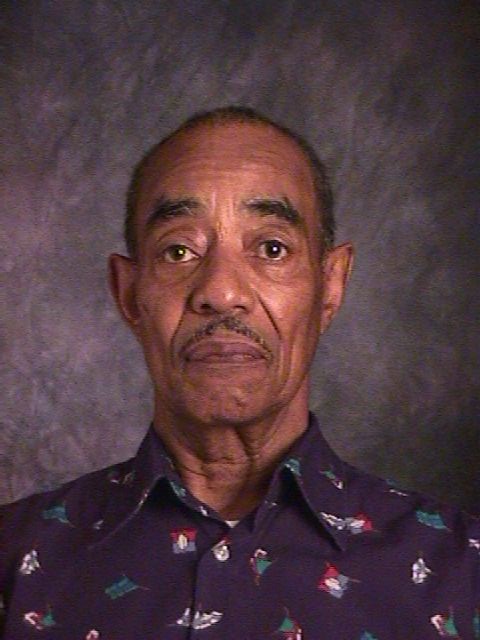|
Donald M. Black, Sr.
Barbara Bloom
Stuart Bogom
Doris L. Clinkscale
Julie Cox
Kate and Thomas Deahl
Fred Dedrick
George C. Draper
Bob Elfant
Fran Emery
Ann and Bill Ewing
David Fellner
Robert Fluhr
Dorothy Guy
Jean Harland
The Hartsfields
Yvonne Haskins
Pat Henning
Lucy Hill
The Johnson Sisters
Andre Johnson
Esther Kahn
Maurice Kilson
Kimbleton and Miller
Andy Lamas
Martha Kent Martin
The Moraks
Robert N.C. Nix II
John and Mary Nolan
Jim Peterson
Debby Pollak
Shirley Ransome
Daisy Reddick
Harold Rush
Steve Stroiman
Tim Styer
Yvonne Thompson-Friend
Mabel Williams
Dr. William Winston
Dan Winterstein
| |
Maurice Kilson
Maurice Kilson has been a positive
influence on the lives of many of Mt. Airy’s youth. During the time when gang
activity was a common choice, Maurice  counseled
young men, advised them about their options, and encouraged them to seek
acceptance within the larger community. He recalls, “It started some time ago
when I found that some of the young people were forming gangs in this area.
There were four or five lower gangs in the area from lower Germantown up to Mt.
Airy.” Young people could identify with him. Because of this, he was able to
reach many young men who were thought to be unreachable by other adults. Maurice
tried to create trust between different members of the community. “The members
of the gangs had quite a concern about the police. I had a good relationship
with the police department and helped some of the kids with misdemeanors. That
is one way I got the confidence of the gang members.” Maurice used that
confidence to build bridges in the community. Gang members had wanted to have
dances at the Commodore Barry Club but thought that they could not do so. But,
through Maurice’s efforts “We had dances at Commodore Barry. We were
promised by the captain of the 14th district and one of the deputy
commissioners that, as long as everything was above board, they would never
interfere. Gang members felt that the important spaces in the Germantown Jewish
Center or Lovett Library were not open to them. But Maurice “went
and talked to Rabbi Charry who consented to them having meetings there. The
library gave their approval as well. The leadership, mentoring, and friendship
of Maurice, and some of the people who worked with him, such as Mark Hartsfield,
were usually able to prevent trouble or to stop it from getting out of hand. counseled
young men, advised them about their options, and encouraged them to seek
acceptance within the larger community. He recalls, “It started some time ago
when I found that some of the young people were forming gangs in this area.
There were four or five lower gangs in the area from lower Germantown up to Mt.
Airy.” Young people could identify with him. Because of this, he was able to
reach many young men who were thought to be unreachable by other adults. Maurice
tried to create trust between different members of the community. “The members
of the gangs had quite a concern about the police. I had a good relationship
with the police department and helped some of the kids with misdemeanors. That
is one way I got the confidence of the gang members.” Maurice used that
confidence to build bridges in the community. Gang members had wanted to have
dances at the Commodore Barry Club but thought that they could not do so. But,
through Maurice’s efforts “We had dances at Commodore Barry. We were
promised by the captain of the 14th district and one of the deputy
commissioners that, as long as everything was above board, they would never
interfere. Gang members felt that the important spaces in the Germantown Jewish
Center or Lovett Library were not open to them. But Maurice “went
and talked to Rabbi Charry who consented to them having meetings there. The
library gave their approval as well. The leadership, mentoring, and friendship
of Maurice, and some of the people who worked with him, such as Mark Hartsfield,
were usually able to prevent trouble or to stop it from getting out of hand.
Maurice encouraged young people in the
community to become involved in the Police Athletic League or other activities
and hobbies. He tried to make sure they had an outlet that would challenge and
stimulate their growth. Maurice used his own financial resources to take kids to
major sporting events. For some, it was the only opportunity they had to attend
major league baseball and football games.
Looking back, Maurice insists that
“The kids in this area are not bad. There are a lot of good young people in
the playgrounds. But they cannot do it without the parents who are not always
there.” As for the effects of community work on himself, Maurice says, “It
has made me a better person. As I go by Sedgwick playground today I feel good. I
only wish I was much younger, so I could doing more today.
Maurice Kilson has been a good neighbor
who has made a difference.
|